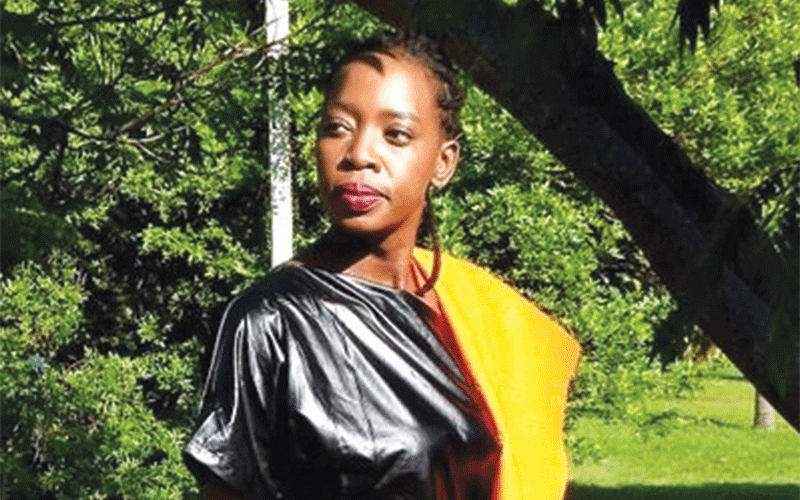
After completing my studies in 2006 at a State university in Midlands Province, I found myself roaming the streets in search of a job.
For almost two years I tried to look for a decent job, but all was in vain. Disillusioned, I had no option but to join several other graduates and professionals who had given up their jobs and migrated to neighbouring countries in search of greener pastures.
In 2008 I ended up in Botswana and my stay there was an eye-opener as I witnessed the experiences my fellow countrymen and women have to go through to make a living.
Prior to my departure, my parents had raised 100 pula for my upkeep, which I had to declare to the immigration officials at the Botswana border.
I was so thrilled about the whole trip, especially the fact that I was escaping from the economic hardships that had crippled so many of my compatriots for the past decade. I looked forward to a better life in a foreign land. Before I left, prayers were made to entrust me to the safe hands of the Almighty.
Also as per tradition, my ancestors were informed of my expedition and asked to look after their muzukuru (descendant) who was travelling to a distant land.
It’s disheartening to note that most Zimbabweans find themselves without a job after completing their studies, in a country with the highest literacy level in Africa and a large percentage of graduates.
Ours is a nation which not so long ago was considered the breadbasket of Africa. The present crisis is due to an economic meltdown over the past years caused by the near–total collapse of industry, which resulted in several companies finding it hard to recruit new staff, let alone to retain their current employees.
- Chamisa under fire over US$120K donation
- Mavhunga puts DeMbare into Chibuku quarterfinals
- Pension funds bet on Cabora Bassa oilfields
- Councils defy govt fire tender directive
Keep Reading
For most of those who happen to be employed, salary levels are not lucrative enough for them to have a decent standard of living, especially civil servants.
This scenario has given rise to brain drain, with the country losing numerous professionals to other countries. They range from engineers, artisans and teachers to nurses and bricklayers.
The majority of these workers could not make ends meet and they were forced to emigrate to neighbouring countries, mainly South Africa, Botswana, Zambia and even as far as Kenya and Namibia.
As such, my search for a job took me to Maun, Botswana, where I stayed with my cousin for almost two weeks before I moved to Gaborone.
I must confess my cousin has settled down well with her husband and their two daughters. They (she and husband) both gave up their teaching posts in Zimbabwe and decided to try their luck in Botswana.
They got an opportunity to teach at a private primary school in Maun. However, my 10-day stay in Maun was not as fruitful as I had anticipated. I failed to secure a decent job. My cousin did her best to ensure I secured a job, but it did not work out well.
I thought it was going to be easy for me to get a job, but I was wrong. Nonetheless, I found comfort from other Zimbabweans I met there who encouraged me to try my luck in Gaborone, which I did.
Notably, I was able to discuss freely and fearlessly the political situation back home. We talked about democracy, good governance, Press freedom, corruption, State monopoly of media, political violence, corruption, hyperinflation and the worthless Zimbabwean currency.
We even commented on the shortages of basic commodities from retail shops and, most importantly, the hope for a new Zimbabwe after free and fair elections. How we hoped for a new Zimbabwe!
While in Maun I observed that most Zimbabweans or “Zimbos” face the same plight of job hunting.
Sadly, some people I met confessed that they were being exploited by their employers who took advantage of the fact that they have no work permits and as such could not report any form of unfair labour practice.
But the responsibility of fending for their families back in Zimbabwe had resulted in many working under harsh conditions with no workers’ rights to talk of. They have become economic slaves.
I also met college and varsity students, as well as professionals from Zimbabwe who have taken up low-paying jobs in order to survive.
Most Zimbos I came across work as bricklayers, nurses, caregivers, drivers, teachers, engineers, housemaids, hairdressers or security guards. Some take up piece-jobs or rese-rese (anything) as most people call it.
The greatest challenge they face is getting work permits so many end up working without proper documentation, which means they have to play the cat-and-mouse with the authorities as they are illegal workers.
On the other hand, I met a certain breed of Zimbos who have done well financially. They have well-paying jobs, as evidenced by the posh cars they drive and how they have invested in property back home.
There are others who have opted to buy houses in Botswana and opened up businesses and have no intention of returning back home.
As for those who are investing back home, they hope that one day they hope to return kumusha (back home) to be with their families when the economic situation improves.
When I was in Gaborone, my heart bled at how some of our sisters have turned into the oldest profession — prostitution — in the quest to earn a living. They send the money they make from selling their bodies back home for the upkeep of their families.
Obviously, I also came across some women I salute for being breadwinners. These manage to earn their income through honest means, especially by trading or taking up “piece-jobs”.
I respect them for keeping their moral standards high by refusing to be corrupted by the excessive love for money. Furthermore, I noticed moral decay shown by some married women whom I encountered there. They believe that being far away from home means no one will notice them as they indulge in illicit affairs.
As I see it, this search for greener pastures has sadly led to disintegration of families and the break-up of many marriages.
I have heard of a case of one married woman who left her Zimbabwean husband for a Motswana and has started a new life in Botswana.
It’s no secret that women are very vulnerable. Whenever they get desperate for shelter, food or jobs, do not possess required documents to stay legally or have overstayed, they are taken advantage of by the uniformed forces and sexually abused. The situation is pathetic.
Having failed to secure a decent job for close to three months in Gaborone, I decided to make my way back home. I had managed to raise my bus fare from the piece-jobs I did. However, I did not despair that I was going back home, but rather I came to the realisation that not all that glitters is gold.
My journey from Gaborone to Francistown was by train. I sat next to a Zimbabwean woman who had a baby who was still suckling. We talked and laughed as we shared experiences and anecdotes about life in a foreign land.
She told me how much she missed home. She had been in Gaborone for two years and had been playing hide-and-seek with the police because she had overstayed.
Unfortunately luck ran out for her when police inspecting passengers found her and others without passports and took them to a place I do not know.
I said goodbye to her as the police began harassing her. I hoped for the best for her. I don’t know what they did to her and the rest of the Zimbos who were also arrested for being illegal immigrants.
Mine is the story of many Zimbos, who get abused and harassed by the police while trying to work to support their families back home and ensure they have a decent life. This is my story and theirs too.
Do you have a burning contribution on any issue ? Write to [email protected] and we will publish your article. Articles should be between 600-800 words.











